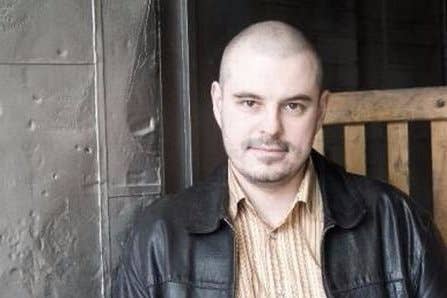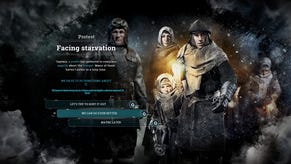"Splinter Cell: Chaos Theory gave me brain damage"
Clint Hocking says prolonged crunch can produce great games, but he had better results with a healthier approach
Last week, Amazon Game Studios developer Clint Hocking wrote a blog post about his work on 2005's Splinter Cell: Chaos Theory. He talked about spending most of the game's two-year development cycle working 80 hours a week, and how he didn't even realize the impact it had on him until meeting a friend after the game's completion.
"Over dinner one night, we got to talking about the time he'd last been in Montreal," Hocking said. "During that discussion, I kept correcting him about what we'd done the last time he was in Montreal, but we kept disagreeing about the details and the timing. Over the course of the meal, we realized that I actually had no memory of his trip to Montreal six months previously, and that I was recalling a previous visit he'd made about a year or so before that. Dave had spent a week living in my house. I had curtailed my work week down from 70-80 hours to a normal 40 in order to spend time with him. We had eaten great meals, gone to great bars, seen movies, played games, and talked about our careers and the industry and our pasts and our futures, and all of it was simply fucking gone. I could not remember any of it.
"There was just an empty space in my brain that had been overwritten by the stress and anxiety of Splinter Cell. Splinter Cell: Chaos Theory gave me brain damage."
"To be clear - I do not mean I didn't remember what we did or what we talked about. I mean that I literally had no memory of the events. To me it was like it never happened. It was like he never visited. There was just an empty space in my brain that had been overwritten by the stress and anxiety of Splinter Cell. Splinter Cell: Chaos Theory gave me brain damage."
In a follow-up post yesterday, Hocking went into further detail about the story. In it, he offered some defense of development crunch.
"I think the most important thing that I feel about it, is that the problem of quality of life in the game industry is not a simple problem, and that having a simplistic stance on the issue is not helpful to the people who are suffering," Hocking said.
Hocking said his crunch on Chaos Theory was self-imposed, that working on the game "was the only thing I wanted." He also dismissed notions that prolonged crunch is universally counter-productive, saying he doubts the game's 94 Metacritic with crunch would have been a 100 without it.
"Probably every quality of life issue is different," Hocking said. "Everyone gets sucked into different traps. Long hours can be the thing that causes the problem. They can be the thing that compounds it. They can be the thing that people use to conceal the problem. Believe it or not, they can also be the thing that helps. There is no single problem, and there is no magic bullet."
"Long hours can be the thing that causes the problem. They can be the thing that compounds it. They can be the thing that people use to conceal the problem. Believe it or not, they can also be the thing that helps."
That said, Hocking also recognized the toll Chaos Theory's crunch took on him. Hocking said that early in his career, a friend had advised him to make himself irreplaceable. At Ubisoft, that meant putting his hands on everything, picking up spare tasks and expanding the influence he had on the game. Eventually, that approach took him from rookie level designer on Splinter Cell to creative director, lead level designer, and scriptwriter on Chaos Theory.
"I realized that while it had technically 'worked,' it was totally unsustainable and would not end well," Hocking said. "I decided I needed a new strategy, and what seemed a straight-forward alternate strategy at the time was to just 'do the opposite'."
Hocking went to work on Far Cry 2 and resolved to make himself utterly replaceable. He hired a better lead level designer than himself and a better writer then himself to work as the game's narrative designer. He worked 40-50 hours a week for most of the game's development, and tried to force the rest of the team to keep similarly reasonable hours. While Far Cry 2 didn't quite match Chaos Theory's Metacritic (it averaged an 85), Hocking believes the approach paid off.
"Far Cry 2, in my opinion, is a better and more important game that Splinter Cell: Chaos Theory," Hocking said. "I won't try to take too much credit for that, but I do suspect that if I had continued to position myself as irreplaceable, I would not have made it through at all. The project would have crashed and burned, the game would have been taken over by another creative lead and likely rebooted. Likely many of the people who developed themselves through the course of that production would have been derailed and might not be doing as well professionally as they are today."





.jpg?width=291&height=164&fit=crop&quality=80&format=jpg&auto=webp)



